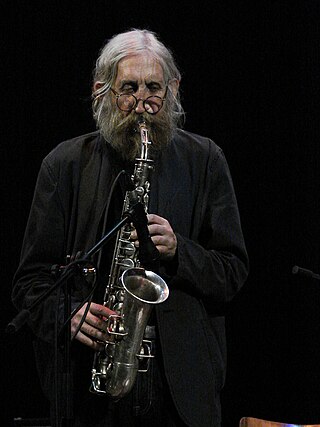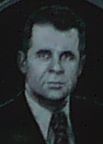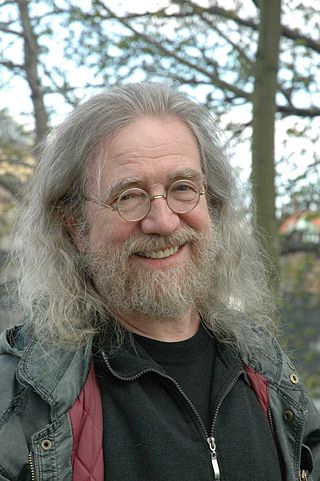
Charter 77 was an informal civic initiative in the Czechoslovak Socialist Republic from 1976 to 1992, named after the document Charter 77 from January 1977. Founding members and architects were Jiří Němec, Václav Benda, Ladislav Hejdánek, Václav Havel, Jan Patočka, Zdeněk Mlynář, Jiří Hájek, Martin Palouš, Pavel Kohout, and Ladislav Lis. Spreading the text of the document was considered a political crime by the Czechoslovak government. After the 1989 Velvet Revolution, many of the members of the initiative played important roles in Czech and Slovak politics.

Sportovní klub Slavia Praha – fotbal, commonly known as Slavia Praha or Slavia Prague, is a Czech professional football club in Prague. Founded in 1892, they are the second most successful club in the Czech Republic since its independence in 1993.

Ivan Martin Jirous was a Czech poet and dissident, best known as the artistic director of the Czech psychedelic rock group The Plastic People of the Universe, and later one of the key figures of the Czech underground during the communist regime. He is more frequently known as Magor, which can be roughly translated as "shithead", "loony", or "fool", a nickname given to him by the experimental poet Eugen Brikcius.

The Plastic People of the Universe (PPU) is a Czech rock band from Prague. They are considered the foremost representatives of Prague's underground culture (1968–1989), which defied the Czechoslovakia's Communist regime. Members of the band often suffered serious repercussions, including arrests and prosecution, because of their non-conformist ideals. The group continues to perform, despite the death in 2001 of its founder, main composer, and bassist, Milan Hlavsa. To date (2023), they have released nine studio albums and over a dozen live albums.
Petr Cibulka is a Czech politician and dissident. He is the founder and leader of the minor Right Bloc political party.

FC Trinity Zlín is a professional football club from Zlín, Czech Republic. The club has spent a number of seasons in the top league of the country, both the Czechoslovak First League and later the Czech First League. They currently play in the Czech First League.

Luboš Kozel is a Czech football manager and former player. Following a playing career where he was associated with Slavia Prague, he spent seven years as manager of FK Dukla Prague, overseeing their transition from the Second League to the Czech First League. Kozel played for the Czech Republic, appearing in nine matches and scoring one goal.

Vratislav Brabenec is a Czech musician and author, and a member of The Plastic People of the Universe.

František Mrázek was a controversial Czech entrepreneur, often referred to as the "Godfather of Czech Organized Crime". Mrázek covertly influenced Czech politics for almost twenty years. In 2006 he was assassinated by a sniper. Most of the publicly available information about his criminal activities and contacts with the politicians leaked from police archives after his death. These sources suspect he was involved in over 30 murders.

Pavel Landovský, nicknamed Lanďák, was a Czech actor, playwright, and director. He was a prominent dissident under the communist regime of former Czechoslovakia.

Jaroslav Hutka is a Czech musician, composer, songwriter, and democracy and human rights activist. He was a signatory of Charter 77 and the 2008 Prague Declaration on European Conscience and Communism.
Zdeněk Klucký is a Czech football manager and former player. He managed FK Jablonec in the 1999–2000 Gambrinus liga.

Gertruda Sekaninová-Čakrtová, born Stiassny was a Czech and Czechoslovak lawyer, politician and diplomat of Jewish origin, later also a dissident and signatory of the Charter 77. She is most renowned for being one of the four deputies of the National Assembly of the Czechoslovak Socialist Republic who voted against the agreement on the temporary stay of Soviet troops in Czechoslovakia in the fall of 1968, following the Warsaw Pact invasion of Czechoslovakia.

Jiřina Šiklová was a Czech sociologist notable for her political engagement and studies of gender in the Czech Republic and former Soviet countries. She was an active campaigner for political reform in Communist Czechoslovakia and was a signatory of Charter 77.

Vlastimil Třešňák is a Czech singer-songwriter and writer. In 1970s, he was member of association Šafrán. He signed Charta 77 and after he was banned for public activities throughout Czechoslovakia. In 1982, he was forced to emigrate from Czechoslovakia by StB. He settled in Sweden and returned to Czechoslovakia after the Velvet Revolution. Since then, he released many solo albums; his most recent album Alter ego was released in 2013.

Jaroslav Bašta is a Czech politician and diplomat. He is a signatory of Charter 77. Between 1998 and 2000 he served in the cabinet of Miloš Zeman as Minister without portfolio. Bašta became the Ambassador of the Czech Republic to Russia in September 2000. He served for five years in Russia, later becoming Ambassador of the Czech Republic to Ukraine, where he worked for three years until stepping down due to health reasons in 2010.

Jaroslav Kořán was a Czech translator, actor, writer, screenwriter, and politician. A dissident and signatory of Charter 77 during Czechoslovakia's Communist era, Kořán translated over seven dozen books, mostly by American writers, from English into Czech, including major works by Kurt Vonnegut, Henry Miller, Roald Dahl, Ken Kesey, Charles Bukowski, John Kennedy Toole, and John Wyndham.
Terezie Holovská is a Czech businesswoman and politician. She ran an unsuccessful campaign to become a candidate for the 2018 and 2023 Czech presidential election.
Jiří Neduha is a Czech singer-songwriter and short story writer. He is the younger brother of musician and writer Jaroslav Jeroným Neduha.















